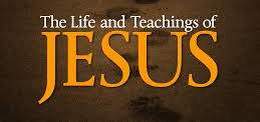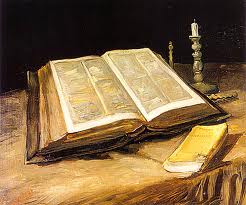From the HUFFINGPOST Website
links: http://www.huffingtonpost.com/rev-g-jude-geiger/liberal-theology-and-the-uncertainness-of-god_b_2146655.html?utm_hp_ref=religionhttp://www.huffingtonpost.com/rev-g-jude-geiger/liberal-theology-and-the-uncertainness-of-god_b_2146655.html?utm_hp_ref=religion
links: http://www.huffingtonpost.com/rev-g-jude-geiger/liberal-theology-and-the-uncertainness-of-god_b_2146655.html?utm_hp_ref=religionhttp://www.huffingtonpost.com/rev-g-jude-geiger/liberal-theology-and-the-uncertainness-of-god_b_2146655.html?utm_hp_ref=religion
Liberal Theology and the Uncertainness of God
Unitarian Universalism (UU) often gets chided as "Theological Switzerland" or "they can believe whatever they want to believe." This criticism has aspects that resonate with our reality while missing the point of liberal faith. Plurality of belief reflects the world we actually live in. Our theology, liberal theology, is seeking ways to speak to this truth.
Our UU theology is rooted in our six sources. Although our sources themselves are not strictly a theology, they ground us in our religious meaning. Any theology would need to reckon with them to be true to our core. Here they are more simply put: Transcendent mystery and wonder moves us to a renewal of spirit. Prophetic deeds challenge us to confront systems of oppression with compassion. All world religions hold wisdom to inspire our ethical and spiritual lives. Love our neighbors as ourselves. Reason and science warn us against idolatries of mind and spirit. We are part of this world and ought to live in harmony with it.
These sources don't answer whether we ought to believe in God or not; they frame the question and they frame the response. And that's part of the main reason for the most common critique of Unitarian Universalism. But our Six Sources are rich in very different ways. They give us space to be true to ourselves, to learn how to live into community, and hold a rich depth in themselves. And religious liberals would be hard-pressed to come up with a reason to disagree with any individual source -- except for maybe how we apply them.
Personally, I've been heavily inspired by the writings of James Luther Adams (JLA). He's a mid-20th century theologian, minister and academic from the U.S. who lived in Germany in the 1930s and was active in the clandestine resistance to the rise of Nazism. We often take our theologians out of context. And as I talk about his thoughts, keep his experience in Germany in mind.
After the breadth of his 40+ years of writing were complete, folks started pulling together bits and pieces of his thinking, jumbled them together, and came up with some pretty helpful combinations. One such is an essay on "The Five Stones." It's a metaphor back to David and Goliath. In the Jewish story, a teenager "David" manages to defeat the Giant named Goliath on the field of battle with a sling and five stones. It's a violent story, but a course of action that prevented two armies from colliding. There was one death instead of thousands. For JLA, the five stones become a metaphor for how we can combat systems of oppression in the world. What are the five things we can do that will unbind the oppressed? In modern language, how do we end Racism, Homophobia, Classism and Misogyny, to name a few.
What does our liberal faith say about living? I will paraphrase the much longer piece, which itself is an edit of a sort, using language that might be more familiar to us:
- Revelation is not sealed. In the unfolding of the human spirit we continuously experience life in new ways and so too does our experience of truth.
- Relationships between people ought to be free. Mutuality and consent are both ethical and theological principles.
- We have an obligation to work toward creating a Beloved Community. Our faith inspires us to the work of transformational community that is centered in justice and love. The prophethood of all believers has a corrective effect on systems of oppression.
- Each child that's born is another redeemer. We are all potential sources of good in the world and each have a role to play. Goodness happens in relationships with one another.
- We choose hope. Our resources, both sublime and mundane, hold all the capacity we need to transform the world.
Our theology is both a faith statement and a process of reflection. Our faith teaches us that we can expect to continue to be inspired, to learn from one another, and to seek out that spiritual growth. Wheresoever we freely choose to enter into communities with one another, we are doing sacred work -- not easy work, not convenient work, but holy work. In this we are obligated to vigilantly transform systems of oppression with acts of love and compassion. We all have the capacity to make this happen, and everything that we need to do so already exists. There is a reason to hope in this world.
Follow Rev. G. Jude Geiger on Twitter: www.twitter.com/revjudegeiger
HUFFINGPOST Website
links:
--------------------------------------------------
From the Website of RNS links: http://www.religionnews.com/blogs/mark-silk/atheists-in-the-public-square http://www.religionnews.com/faith/doctrine-and-practice/belief-in-god-highest-in-developing-and-catholic-countries Atheists in the Public SquareMark Silk | Nov 30, 2012 | Comments (0)I don't think that's going to work. As Charles recognizes, the object of the exercise, at least for some of the atheists, is to create a situation where there will be no religious installations of any kind on public land. Make yourself intrusive or obnoxious enough, and authorities everywhere will ban them all, as has happened in Santa Monica. I'm no great fan myself of public Nativity Scenes, Menorahs, etc., but what's important to recognize is that there are generally observed if not legally binding rules that govern how we do religion in public. Foremost among them is not attacking others' faith. Nativity Scene sponsors do not, for example, affix messages to the manger damning to hell all who are not with the Xmas Program. Unfortunately, the winter solstice displays do the anti-religious equivalent of that. I agree with Charles that "we can all benefit from a more civil and peaceful public square." But I'd say that the best way to get there is not to invite the atheist grinches to butt out. After a few years, they will seem as innocuous as all the other displayers, and who knows, they may even have evolved a Winter Solstice holiday worth celebrating.
-----------------------------------------------------------------------------------
Religious belief highest in developing and Catholic countriesAnnalisa Musarra | Apr 18, 2012 | Comments (0)
(RNS) Belief in God is slowly declining in most countries around the
world, according to a new poll, but the truest of the true believers can
still be found in developing countries and Catholic societies.
The “Beliefs about God Across Time and Countries” report, released Wednesday (April 18) by researchers at the University of Chicago, found the Philippines to be the country with the highest belief, where 94 percent of Filipinos said they were strong believers who had always believed. At the opposite end, at just 13 percent, was the former East Germany. “The Philippines is both developing and Catholic,” said Tom W. Smith, who directs the General Social Survey of the National Opinion Research Center at the University of Chicago. “Religion, which is mainly Catholic, is very emotionally strong there.” The report covered data from 30 countries that participated in at least two surveys in 1991, 1998 or 2008. In 29 of the 30 countries surveyed in 2008, belief increased with age: Belief in God was highest for those ages 68 or older (43 percent), compared to 23 percent of those younger than 28. While overall belief in God has decreased in most parts of the world, three countries -- Israel, Russia and Slovenia -- saw increases. The report said religious belief had "slowly eroded" since the 1950s in most countries of the world. Atheism and unbelief was most prominent in northwest Europe and some former Soviet states, with the exception of majority-Catholic Poland (just 3.3 percent). The United States (60.6 percent) was ranked in the top five countries for people who said they knew God existed and had no doubts. Besides the Philippines, the other countries were Chile (79.4 percent), Israel (65.5 percent) and Poland (62 percent). KRE/AMB END MUSARRA
RNS Website
links:
|
BIBLE LIGHTS PROMOTIONS
-------------------------------------------------------------------------
---------------------------------------------
--------------------------
---------------------------------------------
--------------------------


















0 comments:
Post a Comment